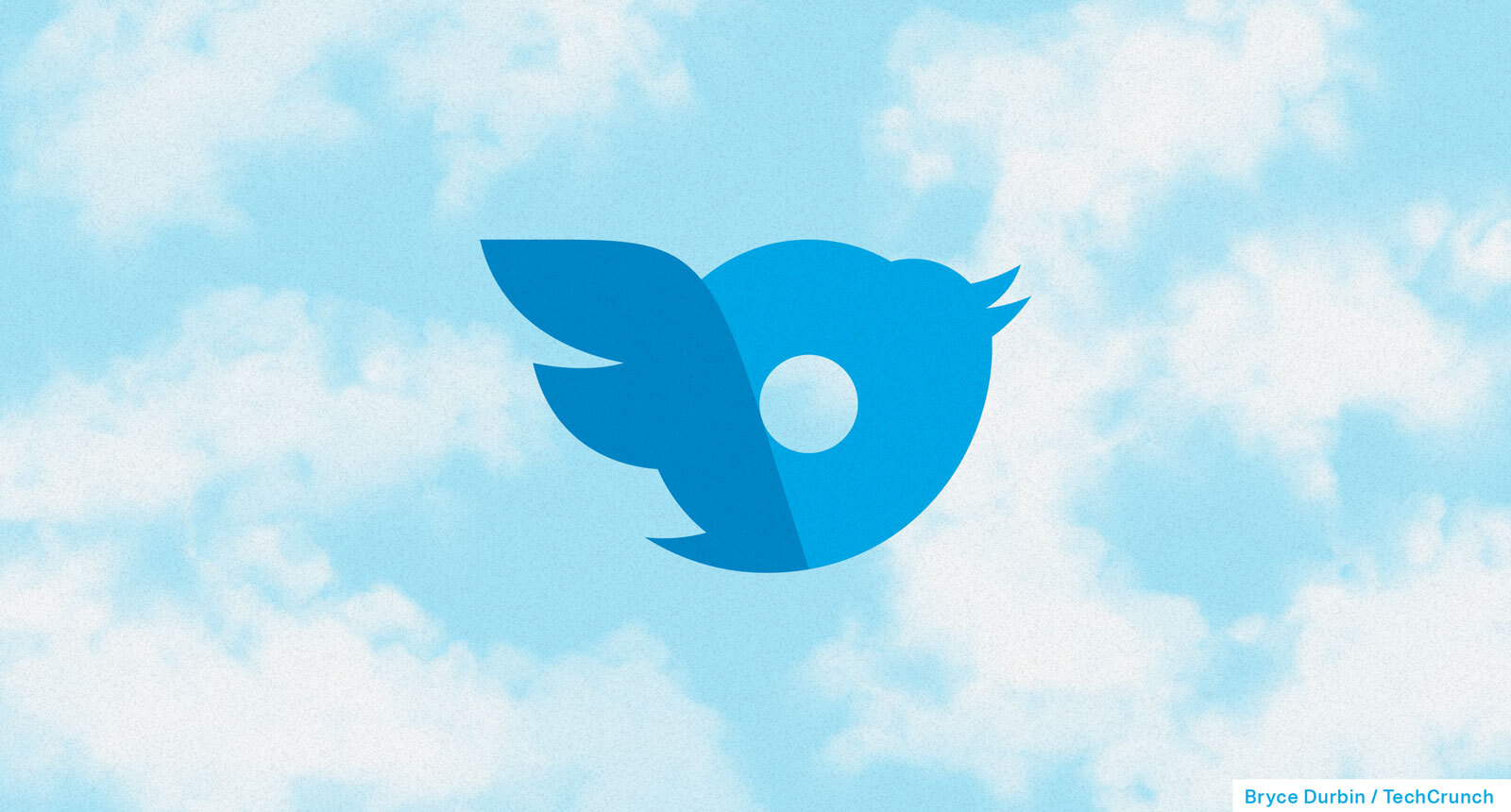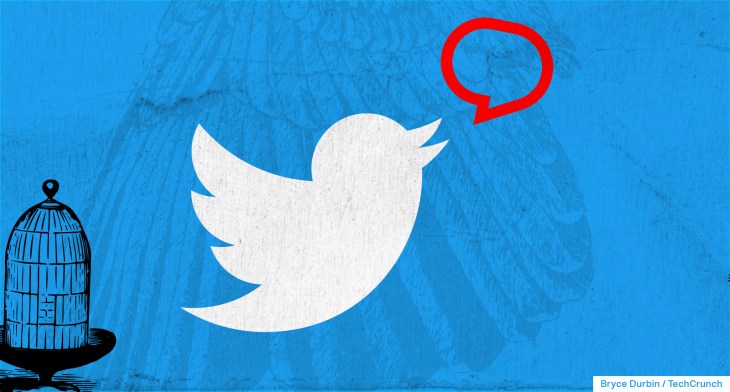Welcome to Startups Weekly, a nuanced take on this week’s startup news and trends by Senior Reporter and Equity co-host Natasha Mascarenhas. To get this in your inbox, subscribe here.
We’ve been living through a lot of tech history over the past two years, but the brutal Twitter layoffs feel especially sad, complex and exhausting to anyone who follows the industry. We knew it was coming, then we were told it wasn’t, then it most certainly was, then it did. Reports say that half of Twitter’s 7,500 team will lose their jobs.
I don’t have a hot take, or a Musk-related quip about this moment. I just have empathy for the people who lost, or might lose, their jobs after investing time, energy and care in building Twitter. Twitter employees are turning to the hashtag #LoveWhereYouWorked, a riff on the internal hashtag #LoveWhereYouWork, to thank each other, say goodbye and share the personal news. As one former employee put it, the new hashtag is a “bittersweet phrase — not because I’m gone, but because it’s gone.”
I’ve covered dozens and dozens of layoff stories over the past year, all with a different shade of the same statement: “the macroeconomic environment has caused us to adjust expectations, impacting a percent of our workforce.” One thing that strikes me about Twitter’s layoffs is how the way they were conducted was devoid of emotion and acknowledgment. Even Better.com, which conducted one of the worst layoffs of the year, did better. See below:
On Thursday evening, all Twitter employees received an email stating that they would be informed of their employment status at 9 a.m. PDT on Friday. Each email was to be sent with the subject line “Your Role at Twitter.” If an employee is keeping their job, they were to be notified via their work email — if they are let go, they would be notified on a personal address.
“To help ensure the safety of each employee as well as Twitter systems and customer data, our offices will be temporarily closed and all badge access will be suspended,” Thursday’s email read. “If you are in an office or on your way to an office, please return home.”
The email was impersonally signed: “Twitter.”
TechCrunch put together a Twitter thread for former Tweeps looking for next jobs, which will continue to be updated. While I joked that some high-ranking members may join Andreessen Horowitz next, I’m honestly curious how we’ll see the alumni network pick up their next jobs. Will it be in startups? Or venture? Or will they seek refuge in roles that feel less risky than tech roles? Or perhaps start a career entirely outside of the tech industry?
I can only imagine this experience feels nothing like whiplash; instead, maybe it feels like an excruciatingly warm spotlight finally letting up, only to find yourself looking around, not really recognizing the audience and stage that you were once in charge of entertaining.
I’m just as lost as the rest of us when it comes to predicting what’s next, but it’s clear that today marks an inflection point in tech history. What Twitter and its alumni will make of the moment is another question altogether. As someone who loves to nerd out about networks and how they start and stop people, my DMs are open.
In the rest of this newsletter, we’ll talk about Gen Z turnover, fintech trends and Twitter again. As always, you can follow me on Twitter for my thoughts every day of the week.
Gen Z VC
Meagan Loyst announced this week that she is leaving venture firm Lerer Hippeau to go full time on a community she’s been building for years: Gen Z VC. In a Twitter thread announcing the news, Loyst said she’s teaching a VC 101 course, starting a newsletter, working on content creation and working with firms to demystify the Gen Z generation.
The news comes around a month after GV’s Terri Burns announced she was leaving the firm where she became its youngest and first Black female individual to gain the partner title. As Burns shared with TechCrunch in 2020, her investment thesis is simple: Gen Z.
Here’s why it’s important: While we don’t yet know what Burns is doing next, her and Loyst’s departure from institutional firms during a volatile moment in tech is a good reminder of how cyclical ventures can be. We recently recorded an Equity podcast about the job of a venture capitalist and how that’s expanding and rewriting itself as time goes on: Investors are either ghosting, quiet quitting or rewriting their entire playbook.

Image Credits: MirageC (opens in a new window) / Getty Images
Another section about layoffs
Stripe and Chime announced layoffs this week, in a back-to-back reminder that fintech is still experiencing volatility despite its ability to attract venture dollars.
- We also learned from sources that stock trading service Public.com has let go of 13 people, or around 7% of its team. Co-CEO Leif Abraham said in a statement to TechCrunch that “these decisions were made to ensure we’re optimizing toward our most strategic goals and evolving our talent allocation accordingly.” While Public’s workforce reduction is at a smaller scale than Chime and Stripe, it’s telling that it scaled back staff during the same week that it pushed for international expansion. Credit: Anita Ramaswamy and Mary Ann Azevedo for the push to confirm this news.
Here’s why it’s important: Companies don’t only cut staff when they have to. In a memo announcing the layoff, Stripe CEO Patrick Collision snuck in that the company “signed a remarkable 75% more new customers in Q3 2022 than Q3 2021” and that they recently set a record for total daily transaction volume processed on the platform. Brex, which cut 11% of staff last month, announced another new partnership this week. So it feels a bit confusing that the same startups that are growing are the same startups reducing staff. All I can say for now is that the weeks ahead of the holiday season may bring more cuts (and that I’m sorry for jinxing this).

Image Credits: ersinkisacik / Getty Images
Twitter’s OnlyFans moment
My brilliant colleague Amanda Silberling popped off this week in her column about Twitter’s OnlyFans opportunity. She reminds us that Twitter has a lot of work to do before it can help adult content creators safely and securely monetize on the platform — but, at the same time, it may be Musk’s best bet on trying to make his $44 billion purchase make some sense.
Here’s an excerpt:
Twitter is the only major social media site that allows users to post porn. So, for online sex workers, Twitter has historically functioned as an advertising tool for their OnlyFans accounts. But what if those creators could just monetize on-platform and bypass the friction of sending fans elsewhere?
“Sex sells” isn’t a cliche for nothing, and OnlyFans’ financials prove it. In 2021, the company earned $433 million in pre-tax profit, up from $61 million in 2020. The company makes its money by taking a 20% cut of all payments to creators — since 2016, the company has paid out $8 billion to creators, with $4 billion of that paid out in 2021 alone.
The market for online sex work is large enough that it could compensate for the fallout from advertisers.
Read the whole piece here, and tell me what you think!

Image Credits: Bryce Durbin/TechCrunch
A few notes
- If you missed last week’s newsletter, it sufficiently annoyed a few people so come hang: “Venture capital will soon be brimming with ghosts.”
- TechCrunch is going to Miami in a few weeks to throw, you guessed it, a crypto conference. Some of my absolute favorite people are going to be there, including our star crypto team, so make sure you head over and feel free to DM me for a sweet, sweet discount code. Buy tickets and see our line up here.
- I’ll be out next week for my friend’s wedding (pictures to come!) so Kyle Wiggers is taking over the newsletter. Follow him early and be nice, okay?
Seen on TechCrunch
More than 70 VC firms join VCs for Repro coalition to support reproductive rights
Forget the metaverse: Meta should make a new Twitter
Google puts an end to Google Hangouts once and for all
Rewind wants to revamp how you remember, with millions from a16z
Seen on TechCrunch+
I’m not really in the mood to finance your vanity project
How to land investors who fund game-changing companies
Investor’s advice during a downturn: Don’t panic
Unicorns face 5-1 odds as they wait for public markets to warm
I reviewed 1,000+ pitch decks. These are the most common mistakes
If you like this newsletter, do me a quick favor? Forward it to a friend, share it on Twitter and follow my personal blog for more content. Chat soon!
